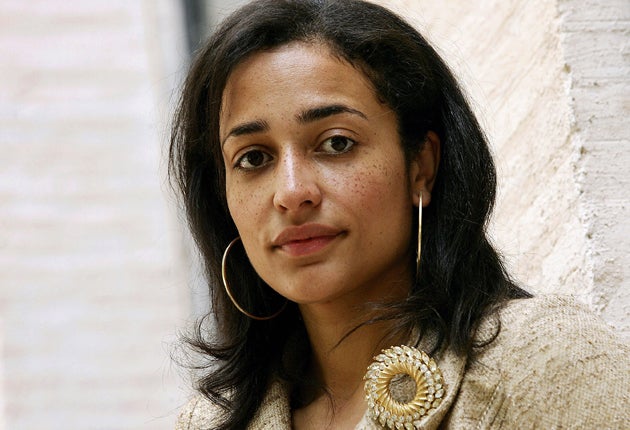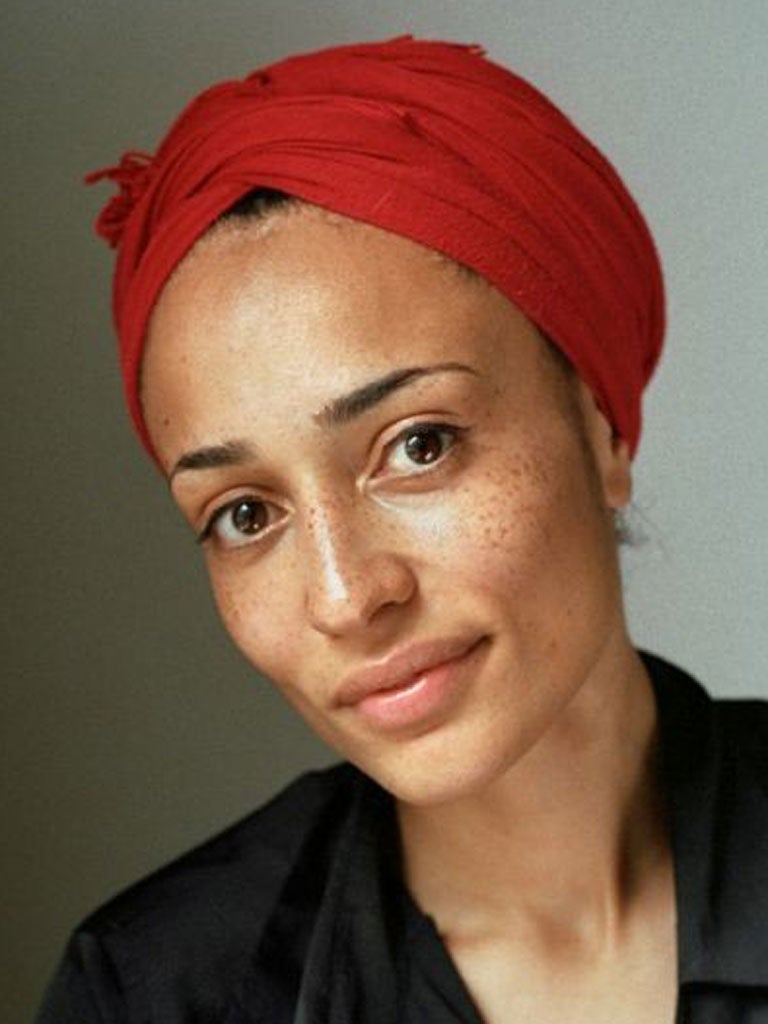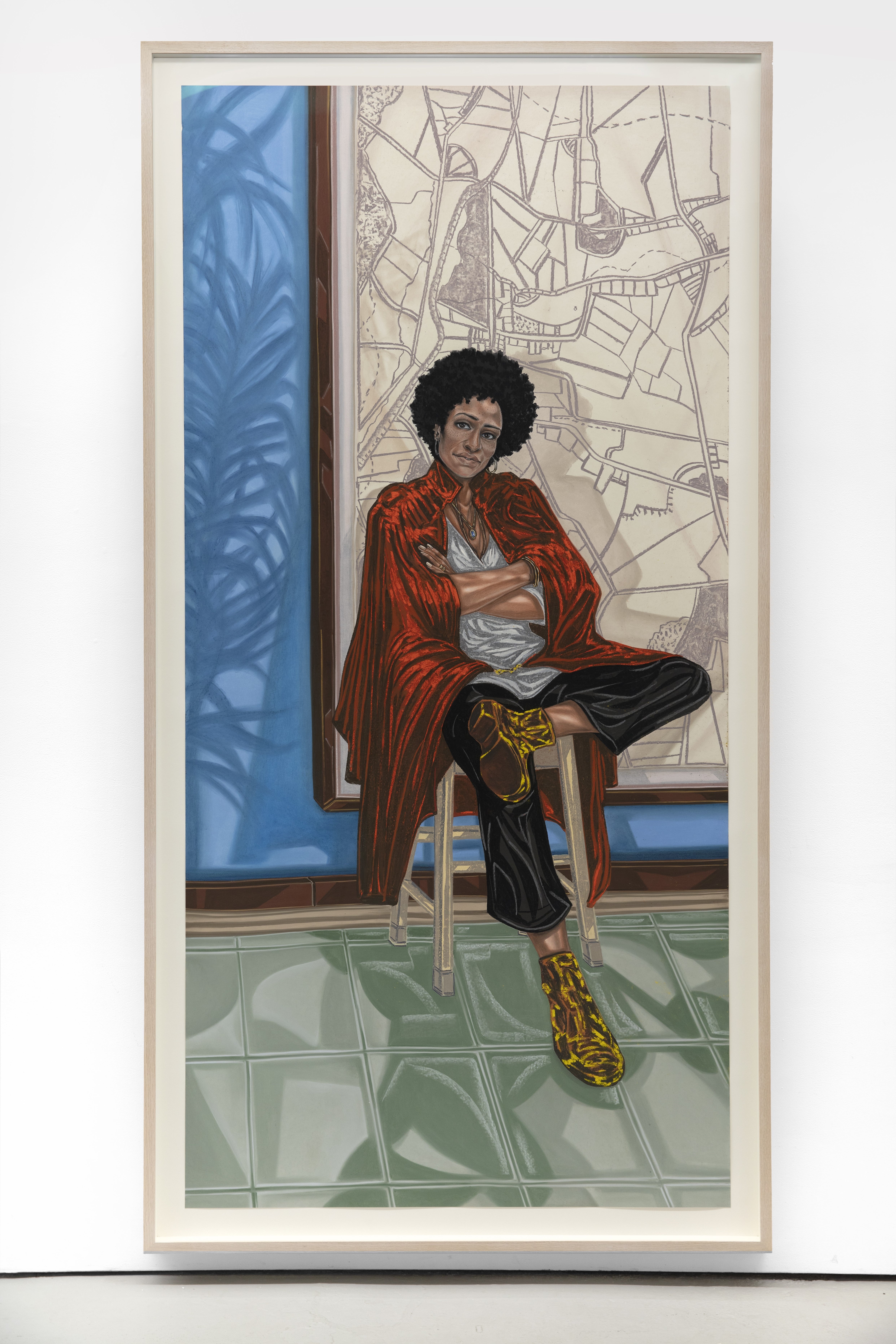
In early 2000, the book that Zadie Smith had begun writing at Cambridge University “as a way of managing anxiety about my exams” entered the world. It was called White Teeth. Its creation had been feverish, and, despite the myriad pressures of university life, it was all she’d been able to think about during her time there.
“I remember being totally obsessed, writing every day, all day,” Smith says now, 25 years and several million sales later. “I’d have a massive fried breakfast at Café Rouge each morning – an insane luxury because it meant you didn’t have to bother with lunch, which breaks up the writing day. Then I’d write and smoke all day until dinner.”
Smith was 24 years old then, the daughter of a white father and a Jamaican mother, and had grown up in northwest London. A voracious reader, she changed her given name of Sadie to Zadie at the age of 14 in deference to one of her favourite writers, Zora Neale Hurston. Her subsequent route to publication was the kind most writers can only dream of: a dizzying advance of £250,000 awarded on just an 80-page extract, and, when her book hit the shelves, a sustaining hype that generated both endless column inches and bestseller status. Her publishers must have been relieved. A quarter of a million pounds on an unknown is quite the punt.

“It’s always impossible to be sure,” says Simon Prosser, Smith’s editor of 25 years at Hamish Hamilton. “But from very early on, the responses from anyone who read it suggested that it could be a rare, perhaps even phenomenal, success. The characters and the writing just leapt from the page; the storytelling skill was remarkable; the voice unique.” And Smith’s own reaction? “I never really doubted I was a writer,” she says. “That would have been like doubting I had arms or legs.”
To reread White Teeth now, as it celebrates its 25th anniversary, is to remind yourself just how worthy it was of that initial fuss. Brilliant and audacious and giddy on its own propulsive momentum, it’s ostensibly a multi-generational family drama with a large cast, but it’s also a comedy, a treaty on race, racism and religion, a coming-of-age tale, and a thoroughly modern look at an increasingly modern Britain. Little wonder it runs to over 500 pages.
Despite its endless digressions, and its very heft, the sense of control here is little short of miraculous for a debut author. Yes, there is an eagerness to please (and to entertain, always) that can perhaps be read now as a beginner’s naivety – and Smith has certainly become a far more controlled writer in subsequent novels – but White Teeth remains terrific fun. Reading it is like being at a dinner party with Hanif Kureishi and Hilary Mantel alongside Salman Rushdie and Martin Amis, each trying to speak over the other. All the wine has been drunk.
The novel went on to sell over 6 million copies, and was lavished with flattering reviews – Rushdie himself called it “astonishingly assured”, while i-D magazine suggested that “Zadie Smith’s cracked it big style.” The Daily Telegraph proclaimed her the “George Eliot of multiculturalism”. Like Trainspotting before it, White Teeth represented a genuine cultural moment, a changing of the guard. By taking the literary novel away from its comfortable Hampstead salons and into a younger, more multicultural world, Smith threw the doors wide open for fiction to become more interesting, and more relevant for today. In her wake, many writers have followed her lead, among them Caleb Azumah Nelson, Candice Carty-Williams and Natasha Brown.
Perhaps inevitably, the occasional critique of White Teeth did trickle in. In those cases, the general complaint was regarding its complex, meandering plot. But plot didn’t matter, insists the writer Lisa Appignanesi, an early supporter of Smith’s, who first introduced her to a literary agent. “There was such imaginative intelligence there, I was in awe. Its energy was extraordinary.”

White Teeth went on to win five prominent literary awards, though it was notably overlooked for the prestigious Orange Prize, with one judge reportedly saying of Smith’s shot at winning: “Over my dead body.” All par for the course; after all, success breeds contempt. “I was suddenly the subject of a lot of envy,” Smith concedes today, “which was a 180-degree flip from my reality up to that point, where I was the one who envied others. It was all so far from my own self-conception that I didn’t really process it or take it seriously. It is, of course, a bit lonely to be the one who is envied – I prefer to be in community with people. Also,” she adds, “it was no great tragedy.”
One might think that all this hubbub would cast a rather inhibiting shadow across whatever Smith did next, but no, she has only emboldened her reputation since. There have been five further novels: The Autograph Man (2002), On Beauty (2005), NW (2012), Swing Time (2016), and most recently The Fraud (2023). If none made quite as big a splash as that ostentatious debut, how could they? Nevertheless, she has been nominated for the Booker Prize three times, and there is compelling evidence to suggest that NW, about four London friends over the course of many years, is one of the most satisfying novels of the 21st century. The Fraud, meanwhile, was her first fully historical work, about the real-life Tichborne case, a legal cause celebre that made headlines in Victorian England in the 1860s.
“Every book I have written, I have written because I felt compelled to write it,” she tells me. “Nobody made me, nobody asked for any of them. Not one was written for money or for any reason other than because I wanted to write it.”
I thought I should read ‘White Teeth’ again for this anniversary, but didn’t get past the first page
Smith has always given the impression that she’s dealt with her brand of fame rather well, perhaps because she’s kept it at a safe distance. She has never engaged with social media, and she soon stopped giving interviews. She only consented to this one over email – normally a nightmare for journalists, but her responses, in big paragraph chunks, sing with her trademark eloquence.
In 2004, she and her husband, the poet Nick Laird (with whom she has two children), left what she had previously called “London’s claustrophobic literary world, or at least the role I had been assigned within it: multicultural (ageing) wunderkind”. They moved to Rome and later Boston, eventually settling in New York, where Smith immersed herself in Manhattan’s claustrophobic literary world instead. There she taught creative writing at NYU and threw martini-fuelled dinner parties in the evenings for her new friends, Lena Dunham among them. “I [also] got to sing jazz at The Carlisle, a dream I’d had since childhood,” she says. “That never would have happened if it wasn’t for White Teeth.”
Smith is today back living in London with her family, where she is a serious woman of letters, a public intellectual routinely sought out by newspaper editors for her take on world events, like Black Lives Matter and Israel-Palestine. Her op-ed pieces, later compiled into several essay collections, either cause or court controversy for the simple fact that her stance is not a universal one. Whose is?

After Smith wrote in The New Yorker in 2024, for example, about Israel’s offensive in Gaza – a piece in which she suggested that “my personal views have no more weight than an ear of corn” – the British commentator Nadeine Asbali responded that “Smith’s literary reputation allows her to overlook the perceived banalities of right and wrong”, before concluding: “My literary idols have failed the moral test on Gaza.”
Smith herself remains sanguine about criticism in general, the inevitable consequence of having a public voice. “I always write freely,” she says. “I can’t write unless I feel free. I know that strangers read me, and that I am therefore being judged or psychoanalysed or politically or aesthetically found wanting, or whatever it is. But that’s how it should be.
“If I was very online and had to be in direct dialogue with them all – well, I imagine that would trim my sails a bit. But as it is, I have the relation[ship] with my readers that all writers had for hundreds of years until about 2003. I write, they read, sometimes someone sends me a letter.”
Now on the cusp of 50, Smith suggests that she isn’t particularly fussed about the 25th birthday of White Teeth – at least, not half as much as her publishers, who have just reprinted her debut in handsome hardback. Instead, she prefers to look forward.
“I thought I should [read it again] for this anniversary, but didn’t get past the first page,” she admits. “But then I never think about any of my novels a year after I’ve written them. I have this need to keep moving.”
‘White Teeth: 25th Anniversary Edition’ is published by Penguin Books







